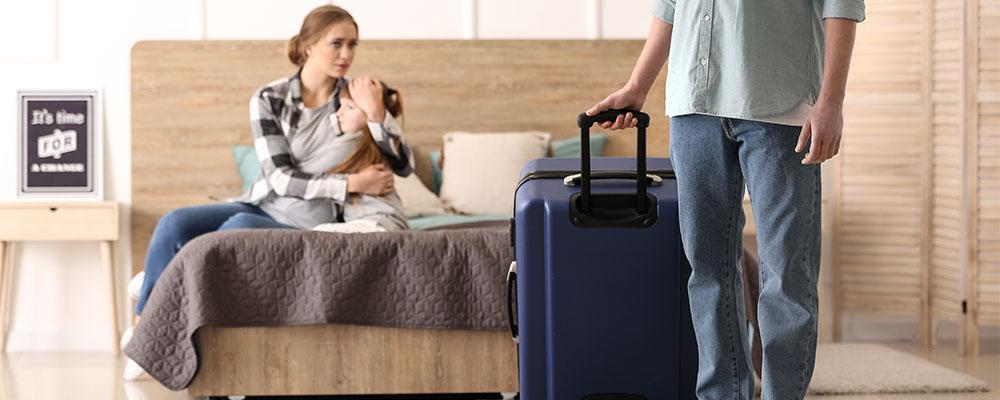
DuPage County Legal Separation Attorneys

Lawyers Helping Clients Obtain a Separation in Wheaton, Glen Ellyn and Surrounding Areas
A legal separation is not the same thing as living physically apart from your spouse. When a married couple is granted a legal separation, they are not only living apart but they are also subject to a court order that describes each spouse's rights and responsibilities for financial and other issues of the marriage. Separation is not as common as divorce, but there are many circumstances in which a legal separation can be advantageous.
The knowledgeable team of legal professionals at Nagle & Giese, P.C. have the experience and resources needed to help you determine if a legal separation is the best choice for your unique situation. If so, we will guide you through the legal separation process and ensure that your rights are fully protected along the way. If not, our team will help you explore other options that can meet your goals.
Advantages of Obtaining a Legal Separation
There are several reasons that a married couple may seek a legal separation. In many cases, a couple is simply not sure that their marriage is truly over but wants to have protection against the financial ties of marriage. They may still hold out hope that their differences will be able to be resolved after some time apart. In this situation, a legal separation allows the couple to separate their finances, as well as to determine arrangements for parental responsibilities (child custody), child support, and spousal maintenance while still remaining married. If the couple later decides to reconcile, they will be able to do so without needing to get remarried. If they choose to proceed with a divorce, they will have already discussed many of the relevant divorce issues and will likely benefit from a more streamlined divorce process.
Property and debt accumulated by either spouse after a judgment of legal separation has been issued is automatically considered non-marital property and not subject to division during a subsequent divorce. If your divorce case is likely to be especially prolonged, you may wish to obtain a legal separation in order to designate the end of the procurement of marital property. Doing so enables you and your spouse to make financial decisions without worrying about how it will affect your divorce.
Some couples decide to seek a legal separation instead of divorce because they need to stay married for the purposes of retaining access to health insurance, pension benefits, or social security benefits that would end with a divorce. Others obtain a legal separation instead of a divorce due to religious, cultural, or personal beliefs. There may also be certain tax benefits associated with remaining married but separated. Whatever your reasons may be, we will remain at your side every step of the way.
Dependable Legal Guidance in Cook County
Although it does not officially end a marriage, obtaining a legal separation is still a fairly involved process. If you and your spouse want to obtain a separation, you will be encouraged to work out custody arrangements for your children, child support, and spousal maintenance outside of court with assistance from your respective attorneys. However, if you cannot reach an agreement on these issues, the court will need to resolve them through a separation judgment.
It is important to understand that Illinois courts do not have the authority to determine the division of assets during a legal separation. If you wish to develop a property settlement agreement with your spouse, you may do so, but it is not required. Presuming your agreement is fair and reasonable, the court is permitted to approve the settlement and incorporate it into the judgment for legal separation.
Call Us for a Free Consultation
If you want to learn more about how a legal separation may benefit you, contact the seasoned divorce attorneys at Nagle & Giese, P.C. to get the answers you need. Call us today at 630-407-1200 and schedule a free initial consultation. We serve clients throughout DuPage County, Kane County, Kendall County, Will County, and Cook County including those in Wheaton Warrenville, Winfield, Carol Stream, Glendale Heights, Naperville, Glen Ellyn, and the neighboring areas.

 630-407-1200
630-407-1200






